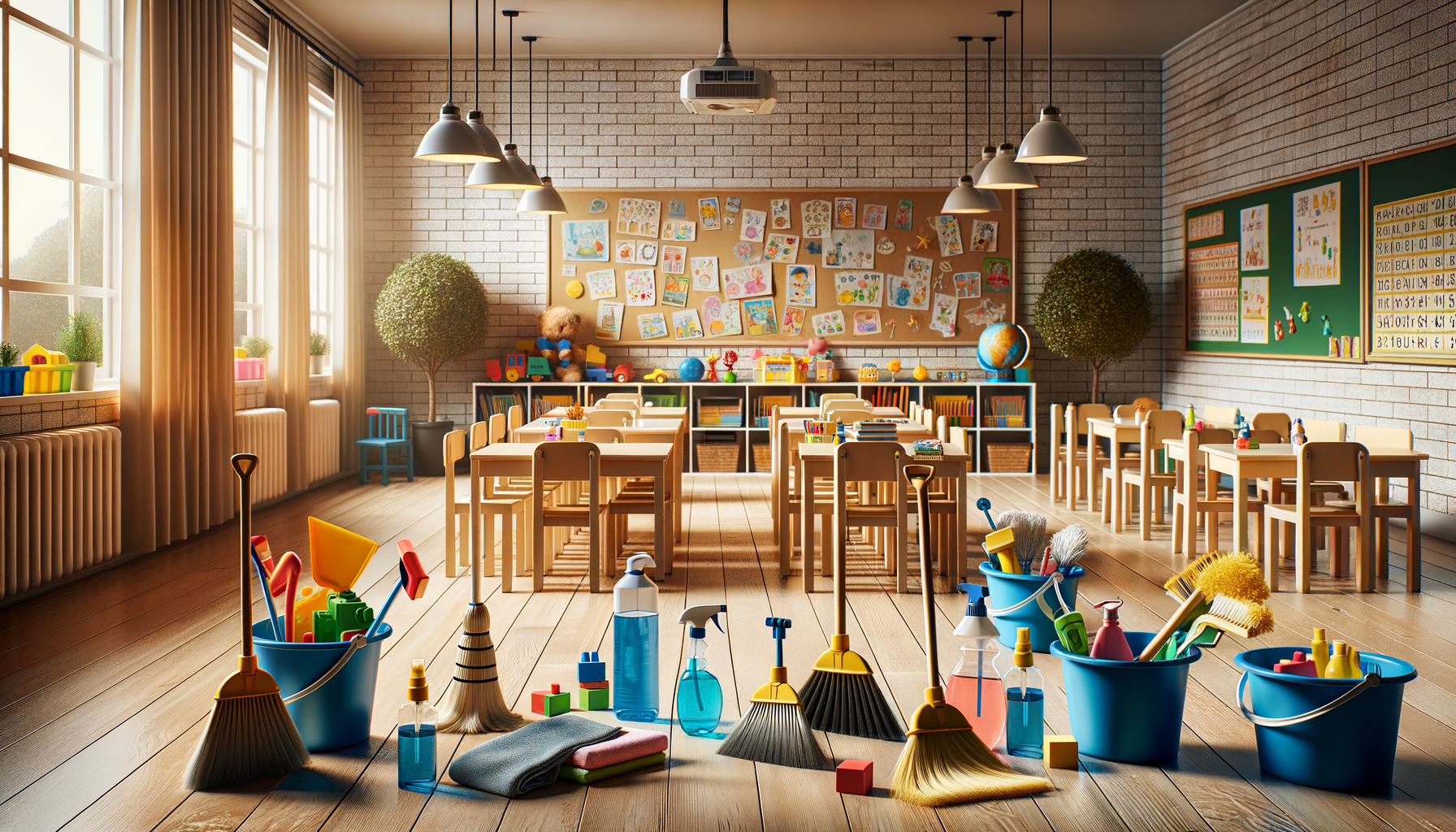Introduction to Kindergarten Cleaning Jobs
In the vibrant and bustling world of kindergartens, maintaining a clean and safe environment is of utmost importance. The role of cleaning staff in these settings is crucial, as it directly impacts the health and well-being of young children. Kindergarten cleaning jobs require a unique set of skills and a deep understanding of hygiene standards to ensure a conducive learning atmosphere. This article delves into the various aspects of kindergarten cleaning jobs, highlighting their significance and the challenges faced by those in this profession.
The Importance of Cleanliness in Kindergartens
Cleanliness in kindergartens is not just about aesthetics; it is a fundamental aspect of health and safety. Young children are particularly susceptible to infections and illnesses, making it essential to maintain high hygiene standards. Cleaning staff play a pivotal role in preventing the spread of germs and ensuring that the environment is free from potential hazards.
Effective cleaning practices help in reducing the incidence of common childhood illnesses such as colds, flu, and stomach bugs. By maintaining clean surfaces and ensuring proper sanitation, cleaning staff contribute to a healthier and more productive learning environment. Moreover, a clean kindergarten also fosters a positive impression on parents, assuring them of their children’s safety.
- Regular disinfection of toys and play areas
- Ensuring clean and sanitized restrooms
- Proper waste disposal and management
Key Responsibilities of Kindergarten Cleaning Staff
Kindergarten cleaning staff have a broad range of responsibilities that go beyond mere surface cleaning. They are tasked with maintaining the overall hygiene and safety of the premises, which includes:
- Daily cleaning and sanitization of classrooms, restrooms, and common areas
- Managing waste disposal and recycling efforts
- Ensuring that cleaning supplies are stored safely and out of children’s reach
- Performing regular maintenance checks to identify potential hazards
These tasks require attention to detail and a proactive approach to prevent any health risks. Cleaning staff must be well-versed in using various cleaning agents and equipment, adhering to safety protocols, and responding swiftly to any spills or accidents.
Challenges Faced by Kindergarten Cleaning Staff
Despite the crucial role they play, kindergarten cleaning staff often face numerous challenges. The dynamic environment of a kindergarten means that cleaning needs are constantly evolving, requiring staff to be adaptable and quick-thinking. Additionally, they must navigate the delicate balance of maintaining cleanliness without disrupting the daily activities of the children.
Another challenge is the physical demand of the job. Cleaning staff are often required to lift heavy equipment, perform repetitive tasks, and work in various weather conditions. Despite these challenges, their dedication ensures that kindergartens remain safe and welcoming spaces for young learners.
Conclusion: The Unsung Heroes of Kindergartens
Kindergarten cleaning jobs are integral to the successful operation of educational facilities for young children. These professionals ensure that the environment is not only clean but also safe and conducive to learning. Their work often goes unnoticed, yet it is vital for the health and well-being of both students and staff.
As we recognize the importance of education, it is equally important to acknowledge and support the cleaning staff who make it possible for kindergartens to function smoothly. By understanding their roles and challenges, we can better appreciate their contributions and advocate for better working conditions and resources.








